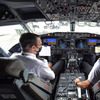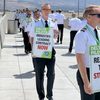Airlines passengers arrive at Chicago’s Midway International Airport on the first day of the Fourth of July weekend on Friday.
Charles Rex Arbogast/AFP
Hide caption
Caption switch
Charles Rex Arbogast/AFP

Airlines passengers arrive at Chicago’s Midway International Airport on the first day of the Fourth of July weekend on Friday.
Charles Rex Arbogast/AFP
The 4th of July weekend got off to a booming start with crowds of airport crowds crushing the numbers seen in 2019, before the pandemic.
Travelers across the United States suffered hundreds of flight cancellations and a few thousand delays on Friday, as did earlier this week.
Patricia Carino and her friends arrive at Los Angeles International Airport only to learn that an Alaska Airlines flight to Mazatlan, Mexico, has been cancelled.
“We’ll probably drive to Mexico — to Tijuana, the border — and fly from there,” she said.
The Transportation Security Administration screened more than 2.4 million passengers at airport checkpoints Thursday, up 17% from the same Friday before July 4th in 2019. U.S. air travel is likely to set a pandemic-era record at least once during the holiday season. weekend.
Traffic on the highway can also be heavy.
AAA expects nearly 48 million people to travel at least 50 miles or more from home over the weekend, slightly fewer than in 2019. AAA says car travel will set a record even with the national average price of gasoline hovering near from 5 bucks.
Leisure travel has rebounded this year, and that means large crowds especially during the three-day weekends.
With so many flights sold out over the Fourth of July weekend, airlines will struggle to find seats for travelers like Carino whose flights have been canceled. Airlines have asked customers to check the status of their flights before going to the airport.
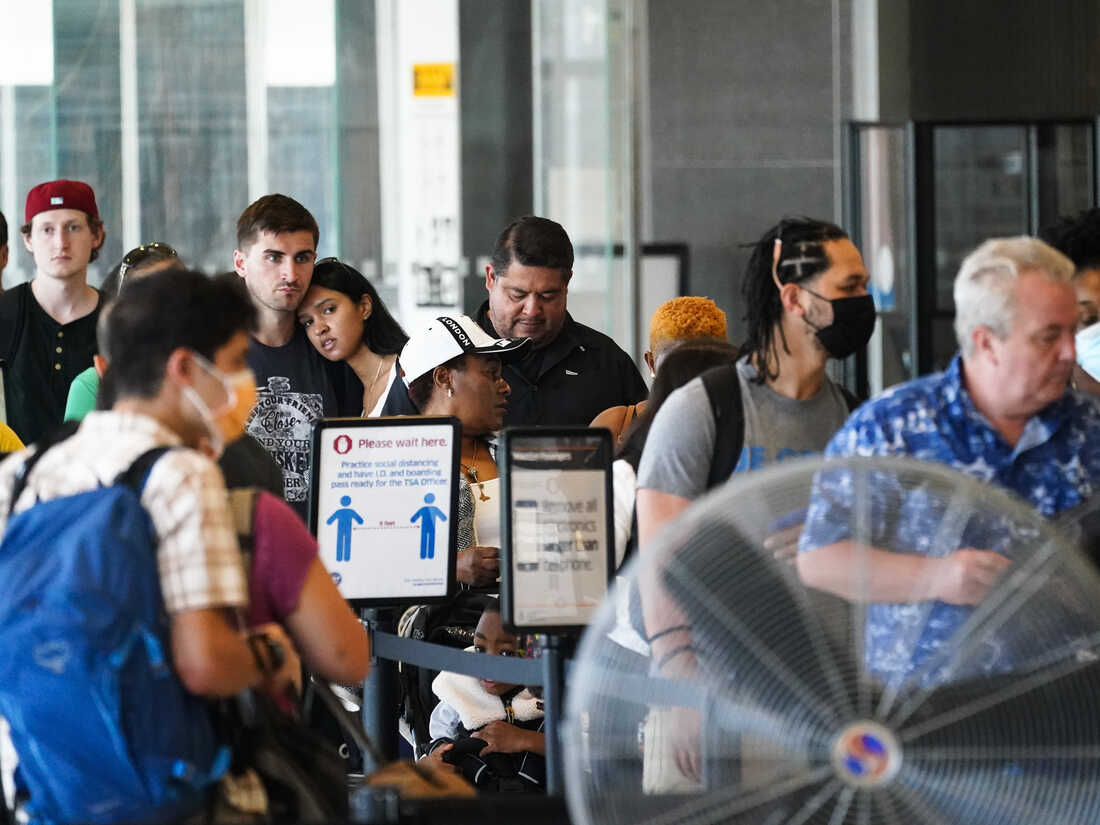
Passengers wait in a security line at Philadelphia International Airport before the Fourth of July weekend in Philadelphia on Friday.
Matt Roark/AFP
Hide caption
Caption switch
Matt Roark/AFP
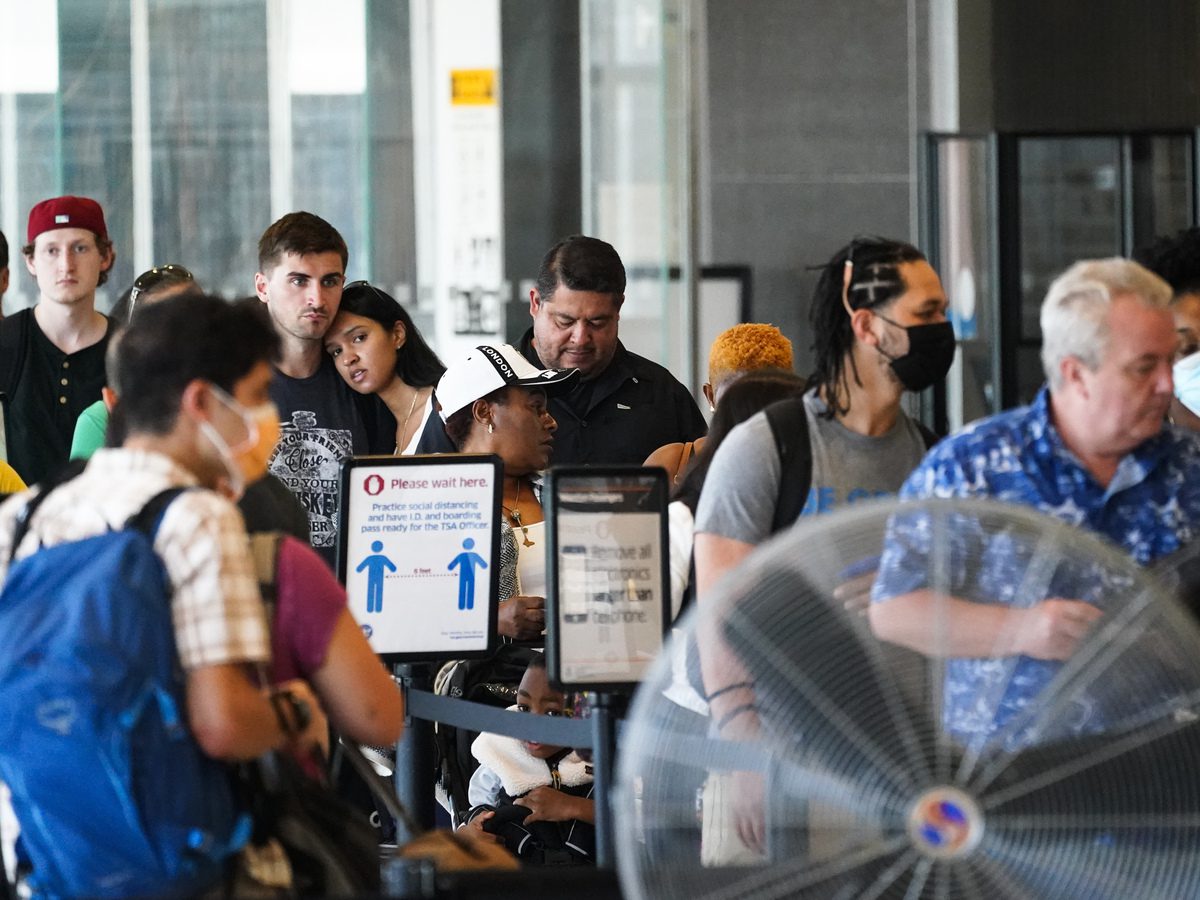
Passengers wait in a security line at Philadelphia International Airport before the Fourth of July weekend in Philadelphia on Friday.
Matt Roark/AFP
If you were already at the airport when your flight was canceled, “It’s time to show off your multitasking skills,” said Sebastian Modak, traveling editor for travel guide publisher Lonely Planet.
Modak advised to head straight to the airline’s help desk, check their app on your phone, and call the airline’s customer service line—an international number may be answered sooner than a US number for airlines that have both. He said driving, taking a bus or train would be a better option for short trips.
“There is no getting around the fact that this is going to be a summer of travel delays, cancellations, and frustrations,” he said.
By early Friday evening on the East Coast, airlines had canceled about 500 US flights and delayed another 5,100, according to FlightAware. Scattered thunderstorms across the New York City area made the numbers likely to rise. The tracking service said that from June 22 through Wednesday, at least 600 flights were canceled, and between 4,000 and 7,000 flights a day were delayed.
Airlines executives blame the recent increase in canceled flights on the Federal Aviation Administration, which operates the country’s air traffic control system, but Transportation Secretary Pete Buttigieg disputes the claim.
Passengers stuck in the middle.
Mary Ismail, who traveled to Atlanta on Friday, said it took a long time to check-in and go through security before her flight from Baltimore.
“I got to my gate right when they started boarding, so it was a very long process,” she said.
Jordan Jeffrey said she’s booked a return flight from Atlanta to Fort Lauderdale, Florida, for Monday, a holiday.
“I hope there will be no delays because I’m working that night,” she said.
Airlines sometimes overbook flights with the expectation that some passengers will not show up. When the number of passengers is greater than the number of seats, airlines will offer cash vouchers or travel vouchers to people wishing to travel on the next flight.
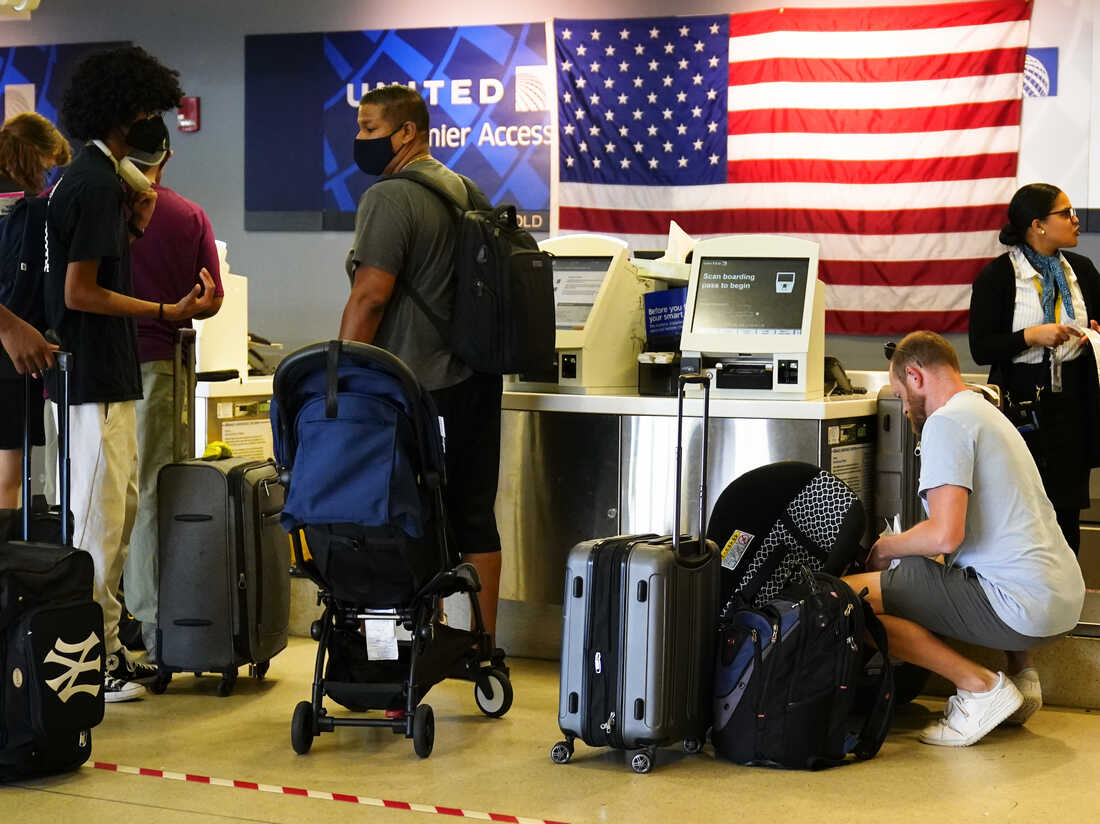
Passengers check in at Philadelphia International Airport on Friday.
Matt Roark/AFP
Hide caption
Caption switch
Matt Roark/AFP
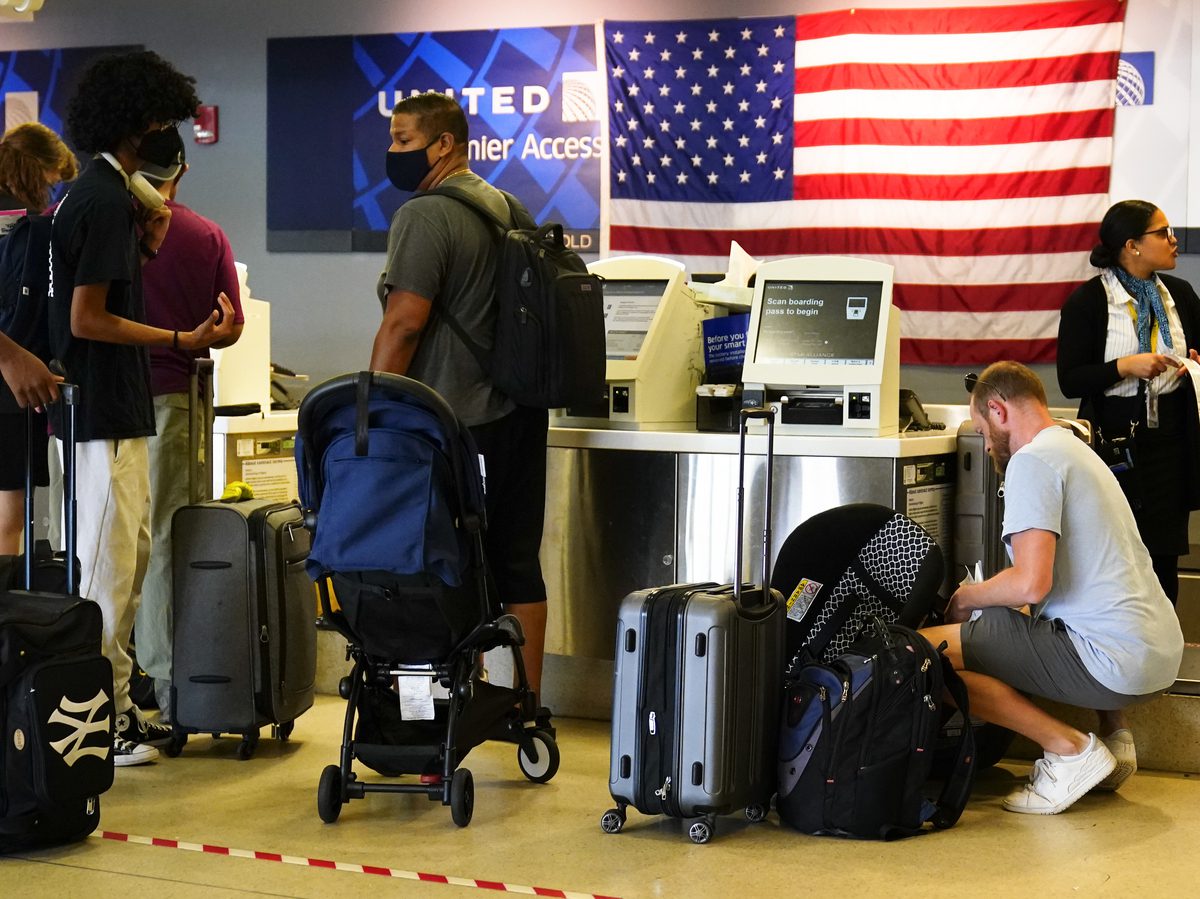
Passengers check in at Philadelphia International Airport on Friday.
Matt Roark/AFP
Earlier this week, a columnist for Inc. That Delta flight attendants offered $10,000 in cash to people who would leave the plane waiting to take off from Grand Rapids, Michigan.
Delta spokesperson Anthony Black did not confirm or deny the journalist’s account, but noted that the airline raised the amount of compensation that compensation agents can offer in such cases to $9,950 in 2017. The move came on the heels of a PR nightmare in United Airlines, when airport officers bloodied and dragged a 69-year-old doctor off a sold-out plane — a case that led to a lawsuit, secret settlement and late-night television jokes about United customer service.
Even with vacationers crowded at airports and on planes, the total number of travelers traveling has not fully recovered to pre-pandemic levels due to reduced business and international travel. The TSA screened 11% fewer people in June than in the same month in 2019.
Thursday marked the 11th time since the pandemic began that the TSA screened more people than it did on the same day in 2019, and only the second time since February.
Airlines will almost certainly carry more passengers if they have enough staff. Several US airlines have scaled back their summer schedules after bad weather, air traffic delays and staff shortages caused widespread cancellations during the Memorial Day holiday.
Airlines paid thousands of workers to quit during the pandemic’s early days, when air travel plummeted and airline revenues dried up. They have been hired recently, but it takes time to train the pilots, who are particularly in short supply.
Now airlines vying for key staff are offering double-digit increases to pilots, who find themselves wielding leverage in negotiations over new contracts.

“Twitteraholic. Total bacon fan. Explorer. Typical social media practitioner. Beer maven. Web aficionado.”

